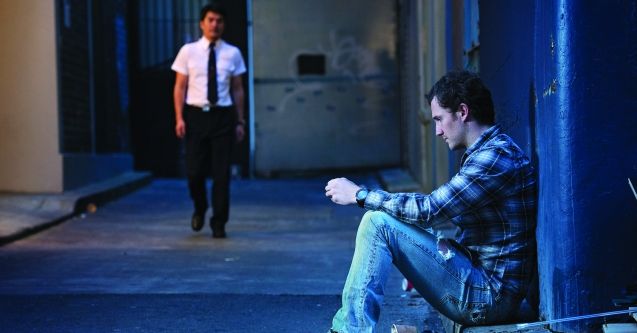Joint OpEd - Advocacy Campaign
6 July 2016

Katie* left home aged 18, having felt unsafe for years.
At a time when her peers were thinking about their study options and choosing outfits for formals, Katie instead became one of
It’s often hard to comprehend that a life on the streets, or couch surfing, or living in temporary accommodation - hand to mouth, feeling vulnerable and alone - would ever be a better option than home. However for Katie, who had suffered years of abuse, going it alone felt like the only way ahead.
Katie sought help, met the right people (for a vulnerable teenager, there are a lot of wrong people out there) and got connected to the right services. She was lucky. Her future is now full of hope.
During the recent election campaign, Katie joined us to meet with Christian Porter, the Minister ultimately responsible for funding the programs that worked for her.
As well as Minister Porter, we held meetings with Senator Katy Gallagher from Labor and Senator Rachel Siewert from the Greens, which provided a space for people who’ve experienced homelessness to share their stories.
We are ensuring that our clients’ voices, so often lost or ignored in the political debate, are being heard and given a platform.
Stories from young people like Katie. Or clients like Dave* who told the Minister about his struggles with mental health and how he ended up on the streets fighting for his life.
These are the continuing stories of the 105,000 men, women and children who on any given night are without a safe, permanent place to call home.
We, and our
Each day, homelessness services across the country turn away more than 200 people because they don’t have the resources to help them. Young, vulnerable, socially isolated women like Katie who take brave and determined efforts to escape intolerable lives. And then we have to say “I’m sorry, we are full. We can’t help you today. Maybe come back tomorrow.”
Sadly, for some of them, tomorrow is too late.
Without giving a voice to homeless people, without their suffering and resilience becoming part of this election narrative, the “too late” stories will continue.
We have a simple ask: that all parties commit to halving homelessness by 2025 and develop a national plan to meet this target.
People don’t become homeless in a vacuum. Some are living with complex traumas, mental health issues, poverty, addiction, or escaping domestic and family violence. Others are simply being priced out of an increasingly expensive housing market.
There are no silver bullets but we know what works: prevent people in high-risk groups from becoming homeless, fund evidence-based programs for people who are already homeless and ensure enough homes for people on low incomes.
The economic evidence is also available. A recent study shows that preventing young people from becoming homeless in the first place could save governments an estimated $626 million per year across the youth justice and health service systems alone.
During the election campaign, both Labor and the Greens stated their commitment to targets and some sensible approaches to tackling the issues. We’re also seeking a concrete commitment from the Coalition to address this issue
But our joint campaign was never about politics. Homelessness will not be solved by one person, one party or one Government.
The nature of homelessness, and its inextricable link to housing supply, development and planning, means this will never just be a Federal Government issue. It is a matter for state and territory governments across the political spectrum, for councils, business, community groups and service providers like us, and society at large.
But that requires national leadership.
That’s why we are uniting to call for national action and political commitment to support Katie, Dave and all those fortunate enough to survive homelessness.
If you’d like to support this call, please sign our petition here and ask your local candidate what their party will do.
Catherine Yeomans, Chief Executive Officer, Mission Australia
Commissioner Floyd Tidd, National Commander, The Salvation Army Australia
Dr John Falzon, Chief Executive Officer, St Vincent de Paul Society National Council
Martin J Cowling, Acting National Director, UnitingCare Australia
Rev Dr Keith V. Garner, AM, Chief Executive Officer, Wesley Mission
*names changed to protect privacy